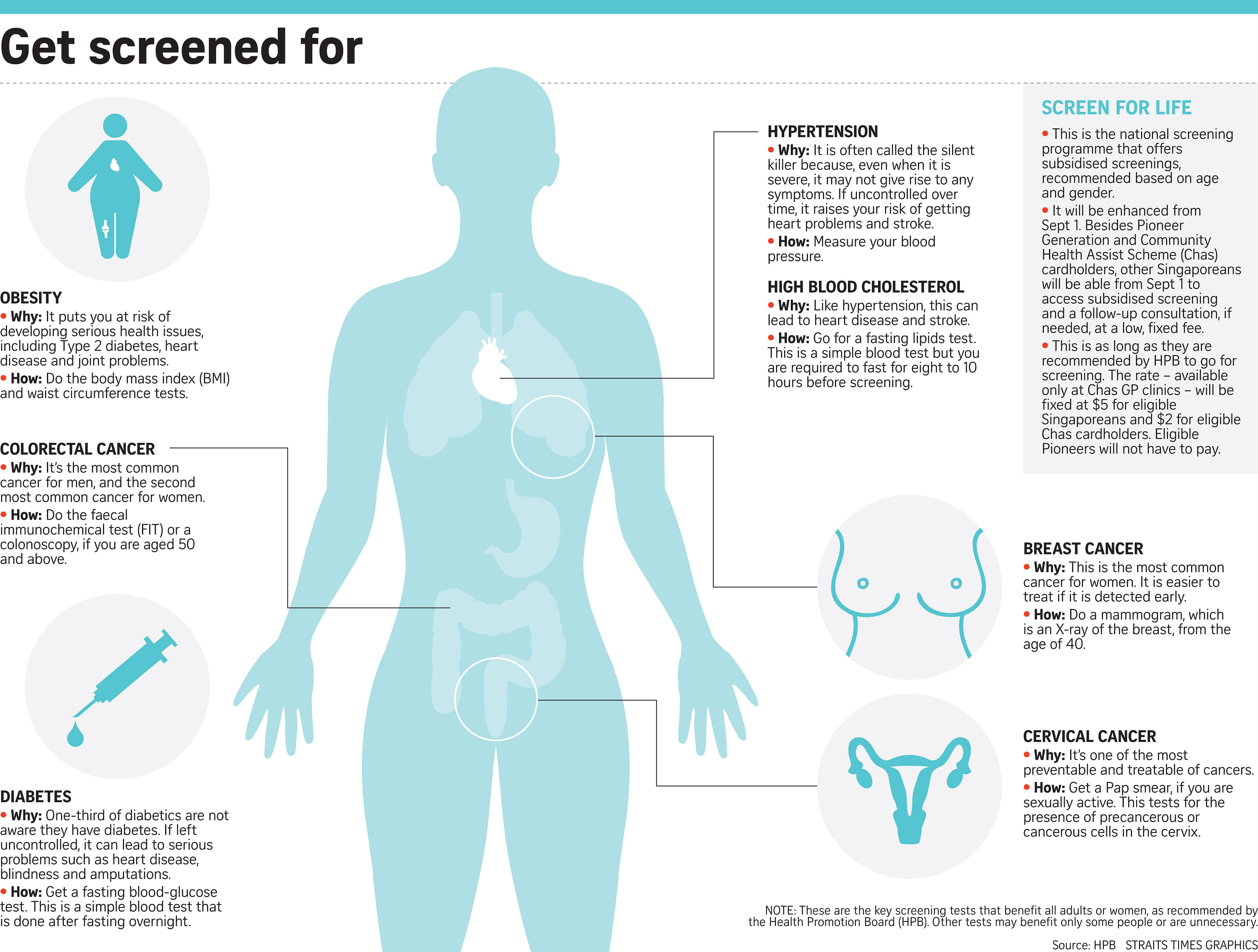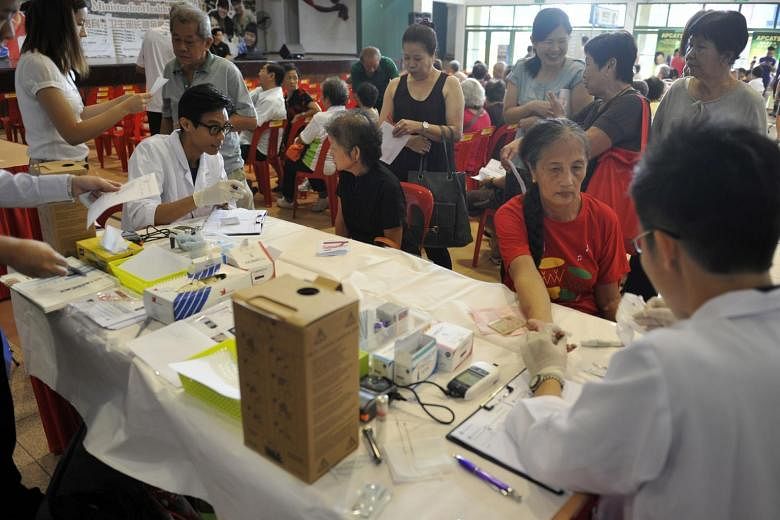BLOOD TESTS
These can help to assess the levels of cholesterol, sugar content, uric acid and hormones, to name a few.
A key test is the fasting blood- glucose test for diabetes.
Blood tests can assess the function of the kidney, liver and thyroid. They can also check the person's immunity against common infections and identify any particular infections, said Dr Derek Koh, head of Thomson Wellth Clinic @ Novena.
Blood tests can also be done to test for certain cancers. Called cancer markers, such tests include the alpha-fetoprotein test for liver cancer and the prostate-specific antigen test for prostate cancer.
EYE TESTS
These check for diseases such as glaucoma and diabetic retinopathy, which is a diabetic complication that affects the eyes.
People with risk factors like high myopia or a family history of glaucoma are encouraged to have a general examination by an ophthalmologist, especially after they turn 50, said Associate Professor Gemmy Cheung, deputy head and senior consultant of the Medical Retina Department at the Singapore National Eye Centre.
Diabetics are also encouraged to have diabetic retinopathy screening based on fundus photography, which captures the back of the eye.

GENERAL TESTS
These include effortless tests like the body mass index (BMI) and waist circumference measurements for obesity.
There is also the blood pressure measurement test for hypertension and electrocardiography (ECG), a non-invasive test that checks for coronary heart disease by recording the heart's electrical activity.
SCANS
These provide a visual inspection of an organ or specific areas, and help look for structural abnormalities or growths, said Dr Koh.
For example, while a blood test can assess the function of the kidneys, a scan is able to detect the presence of kidney stones, he said.
The different types of scans include X-rays and computerised tomography (CT) scans, both of which involve radiation.
Ultrasound and magnetic resonance imaging (MRI) scans do not use radiation, though the latter has a level of discomfort as it requires the patient to keep still in a confined space.
URINE AND STOOL TESTS
These can detect the presence of microscopic blood, which would alert the doctor to possible bleeding in that particular urinary or gastro-intestinal system, said Dr Koh.
Urine and stool samples are collected by the patient himself. The clinic sends them to a laboratory to be analysed.
A urine analysis can be done to check for kidney disorder in a diabetic patient, for instance, while a stool test is often done annually to check for colorectal cancer.
OTHER TESTS
During a colonoscopy, a doctor uses a thin, flexible tube called a colonoscope to look for changes in the colon in order to check for colorectal cancer.
Pap smears, which involve collecting cells from the cervix, are done to check for cervical cancer.
Other tests include the treadmill stress test to check for coronary heart disease, and audiometry to check for deafness in adults.


